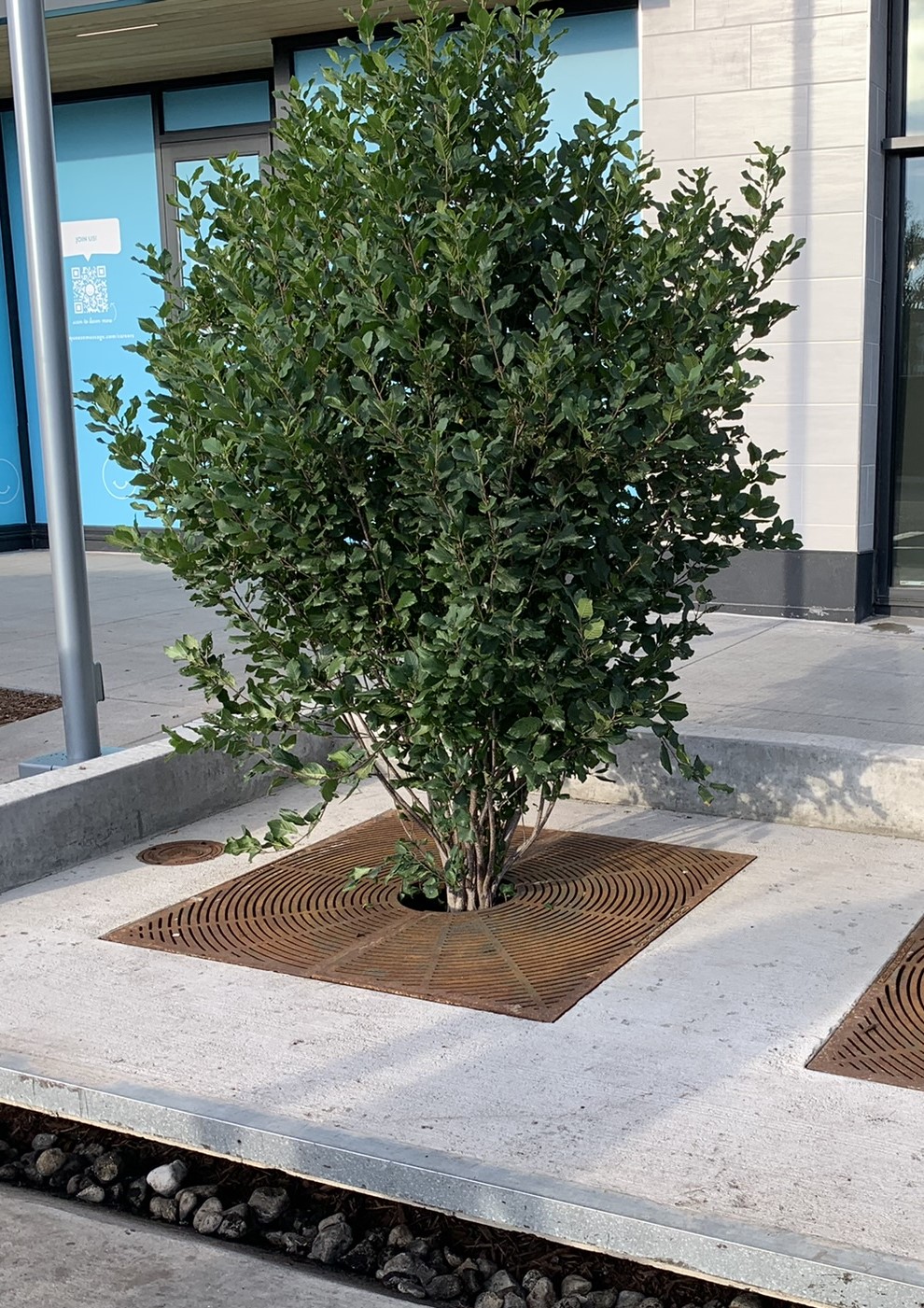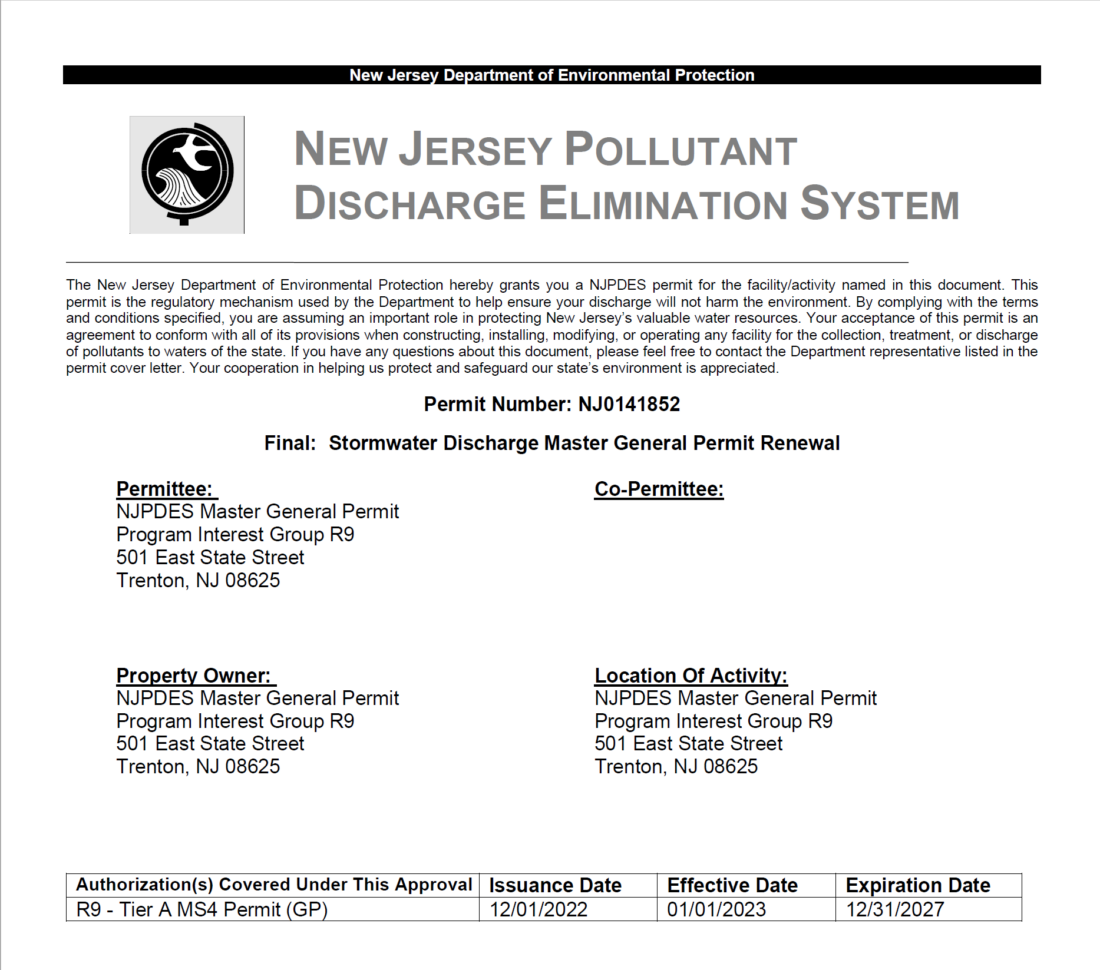
I Have My Stormwater Permit. What Do I Do With It?
Acquiring a stormwater permit is a necessary step for industrial, governmental, certain commercial supervisors and many construction projects managers, but once the permit is in hand, what comes next? Understanding the need to reduce or eliminate stormwater pollution at the facility or on the permitted property is one thing. Understanding how to implement the stormwater permit requirements is quite another. Fortunately for non-stormwater permit-fluent industry leaders, there are stormwater professionals, like those at Stormwater Compliance Solutions, LLC, that can assist with creating and implementing a stormwater management program that is in accordance with the site’s specific stormwater permit requirements. We can assist you to stay on track to meet compliance benchmarks throughout the year (or throughout the job, in the case of construction permits), so that stormwater pollution and its associated risks are addressed.
Stormwater management is a field born out of the Clean Water Act (CWA), which produced the National Pollutant Discharge Elimination System (NPDES) stormwater program that governs the management of stormwater discharge at the federal and state levels. The states, through their respective departments of environmental protection, establish stormwater permit programs for industrial facilities, municipalities and other regulated sites, for the proper discharge of stormwater to reduce and eliminate the introduction of pollutants into the nation’s water bodies. Stormwater management is also a growing field – growing in terms of regulation and need – as the worsening severity, frequency, and intensity of storms across the country continue to devastate communities, homes, infrastructure, public buildings, and private businesses at an alarming rate. Stormwater runoff and the increase of flooding from these storm events must be managed at all levels. It is through stormwater permits and the requirements contained within, that individual sites and areas can best monitor water flow and prevent contaminants from entering the water systems. Stormwater affects us all – and proper stormwater management is employed one facility at a time.
WHO IS RESPONSIBLE FOR MANAGING YOUR STORMWATER PERMIT?
Stormwater general permits or industry-specific individual permits, all too often land in the lap of someone also responsible for a completely different primary purpose, and stormwater permit requirement management is added on to their list of duties due to a lack of better options, or sufficient staffing. This is a common occurrence in nearly every business today with employers needing employees to handle extra tasks.
In a perfect world, those responsible to manage stormwater become trained to properly manage the components of the stormwater permit requirements, and the annual, monthly, quarterly, or daily tasks are enveloped into the routine duties of the day. In reality, we know that most do not have the time to read the entirety of a permit, which can often number in the hundreds of pages, and absorb all the individual requirements. In a less than perfect world, where most of us exist, there is usually some space between well-intentioned responsible parties and the fulfillment of the stormwater permit requirements. This space can lead to stiff fines and penalties – or the inadvertent but preventable discharge of pollutants into our water bodies.
WHAT ARE SOME COMMON STORMWATER PERMIT REQUIREMENTS?
Different states have different components for their stormwater permit requirements, but all share common basic requirements – the development of a Stormwater Pollution Prevention Plan (SWPPP) and/or a Stormwater Management Program/Plan (SWMP), Best Management Practices (BMPs), and an inspection schedule to ensure they are being followed, at a minimum. These plans and practices contain the guiding principles of the program, and they dictate the mandatory steps. As such, these are the primary documents requiring familiarity, and training, for effective implementation.
Stormwater permits of all stripes are typically heavy in regulatory jargon and unfamiliar to many. Sifting through the template verbiage to locate specifics required of the permittee can be confusing. It is for this reason that companies often engage attorneys or other professionals, at least at the onset of applying for a permit, and maybe upon receipt of an approved stormwater discharge permit but rarely much after, when administering the requirements becomes a task for someone else. Stormwater permittees are responsible for inspections, equipment and infrastructure maintenance, annual (at least) training for employees, potentially stormwater sampling and numerous other tasks. All of the stormwater management program elements are required to be logged with files and reports, accessible and available to the state regulators when they arrive to conduct audits/inspections.
Firms like SCS are often contacted post-state inspection by prospective clients that have had deficiencies recorded and are facing penalty. Inspections typically include deadlines for abatement, meaning we sometimes are called to action in an “emergency.” SCS has the experience and the technical expertise to navigate these issues. We can recommend or administer satisfactory corrective actions to reduce our client’s risk. Working with a stormwater management team early on, to develop a solid stormwater management compliance program not only ensures compliance under the stormwater permit requirements, but also greatly reduces exposure to adverse action by the delegated regulatory authority.
Compliance can be difficult to monitor randomly, so a good program will contain a tracking tool of some kind to ensure that inspections aren’t forgotten, tasks are not missed, and stormwater managers aren’t left scrambling at the wrong times to complete requirements. Providing clear instructions for compliance tasks undoubtedly assures actions taken will be fulfilled correctly, thereby stopping harm to water bodies in the first place – the primary objective of all stormwater management permit programs. Fortunately, help with stormwater management is only a call away. SCS assists clients within the industrial, commercial, municipal and construction sectors, and we look forward to becoming a part of your environmental team! Visit SWPPP Training for more information on our services. Looking for more information on how to avoid costly violations? You may be interested to read https://scsstorm.com/stormwater-violations/.
Stormwater Compliance Solutions, LLC is an established industry leader in providing services to help our clients navigate the complexities involved in the successful planning, design, and maintenance of stormwater management systems and programs. Our team of engineers and consultants can design and implement effective stormwater solutions for commercial, industrial, and public properties, and develop programs to aid in permit compliance. Please contact our office 970-999-0480 / [email protected] to discuss your stormwater management needs.




